The Federal Government of Nigeria has been urged to urgently rescue Nigerian cadets and graduates of the Maritime Academy of Nigeria, Oron, by providing platforms for them to undergo sea-time training locally rather than begging for sea time placement from foreign shipping lines.
Mr. Godfrey Bivbere, the Lead, 4 Circle Consult, made the plea while addressing the challenges of the seafarers in Lagos recently.
Godfrey Bivbere, who is also the President of Maritime Reporters Association of Nigeria (MARAN), said the situation is a pathetic one that requires attention of all port stakeholders, particularly the Nigerian Maritime Administration and Safety Agency (NIMASA).
According to Bivbere, “Unless urgent measures are taken by the Federal Government and, especially, the Nigerian Maritime Administration and Safety Agency (NIMASA), Nigeria will soon become a laughing stock in the global maritime industry.
“The neglect of seafarers after their academic work in pursuit of the sea time by the Nigerian government is forcing young Seafarers male and female, to go begging for sea time placement from foreign shipping lines and practitioners.
“President Bola Ahmed Tinubu must as a matter of urgency, direct the Minister of Marine & Blue Economy and NIMASA to commerce record taking of all seafarers seeking sea time placement and also those who have completed their sea time and seeking employment; so that a database can be created to serve as ready pool of information and reference.
“The presidency must go further to ensure that the NIMASA Seafarers Data Warehouse is verifiable, dependable, reliable and valid to ensure that foreign bodies coming for them do not get substandard cadets.
“The second leg must be for the President to also direct NIMASA to create an enabling environment for Nigerians to own vessels, not just for the Cabotage environment but for global shipping business. It is disheartening that while other nations provide their cadets with quality identity cards, NIMASA issues Nigerian cadets identity cards printed on A4 paper.
“Imagine a situation where a company comes along and wants to take Nigerians on a foreign vessel but NIMASA is unable to issue discharge book and the best they can offer is a temporary A4 paper.
“Imagine a situation where a company comes along and wants to take Nigerians on a foreign vessel but NIMASA is unable to issue discharge book and the best they can offer is a temporary A4 paper.
“Whereas there are so many opportunities in the industry globally for Nigerian cadets, such opportunities never get to Nigeria owing to worries about our systemic corruption and thus, Nigeria is isolated from the global industry space.
“We go for conferences or International Maritime Organization (IMO) engagements and hardly make any meaningful contributions, good only at advancing theoretical and paper presentations without actionable blueprints and implementation.
“The problems are enormous but can be resolved with all hands on deck. Whereas National Seafarers Development Programme NSDP made meaning at its conception about two decades ago, the programme has lost content, ideals and innovation and is no longer a valid solution because a lot of the beneficiaries have ended up unemployed, rendering the expectation presently defective and unrealistic.
“Churning out cadets with far limited prospects for sea time training is defeatist in the circumstance that unavailability of training vessels has become a major disincentive.
“Under the circumstances, the best thing to do is to strengthen the Certificate of Competency (CoC) so that seafarers trained in Nigeria would be readily available for the international market, a better middle of the way solution.”
Bivbere, who recalled that in the days of Nigerian National Shipping Line (NNSL) there was no scarcity of sea time training for Nigerian cadets, added “While we are not proposing government ownership of shipping lines, we are calling on government to put in place deliberate policy that will radically recreate and strengthen local shipping capacity where Nigerian ship owners can be empowered to participate in shipping trade and providing them window of guarantee for jobs that will enable them continue to operate and remain afloat as a national concern,” he advocated.
“When this national economic reality is in place, the problem of Nigeria seafarers going cap in hand to beg for sea time training overseas will be a thing of the past. The conditions of our cadets, thousands of whom are clearly stranded is heartrending as can be seen online.
“While our cadets are languishing and trying to fend for themselves, Egypt, Sri Lanka and South Africa are marketing their cadets to the global shipping world. More than a quarter of the world’s seafarers come from the Philippines. In 2019, an estimated 380,000 Filipino seafarers contributed $6.14 billion to the Philippine economy.”
ICRC charged to increase involvement in maritime infrastructure development
The Infrastructure Concession Regulatory Commission (ICRC) has been advised to double its involvement in attracting private investors to the development of infrastructural capacity in Nigeria’s maritime sector.
The Director General of the Nigerian Maritime Administration and Safety Agency (NIMASA), Dr. Dayo Mobereola, advised ICRC and asserted that adopting the Public Private Partnership (PPP) model is essential for the infrastructural development of Nigeria’s maritime sector.
The Director General challenged ICRC while hosting its Director General, Dr. Jobson Oseodion Ewalefoh, in Lagos recently.
Mobereola said; “We appreciate the Management of the ICRC for being responsive. However, you know that the maritime sector is capital intensive and government funds cannot solely put in place the required infrastructure. We need the ICRC to develop PPP based business models that will be attractive to the private sector both from within and outside the country. There is the need to streamline processes by the use of technology, as we will continue to count on the support of ICRC to help drive the Agency’s PPP projects for effective and efficient service delivery to our stakeholders”.
Dr. Jobson Oseodion Ewalefoh, who supported the NIMASA DG’s position, underscored the significance of the maritime sector to Nigeria’s economy. He noted that the PPP model would facilitate increased funding and expertise from the private sector, thereby accelerating the growth and development of the Nigerian maritime sector. Additionally, he stated that the ICRC is prepared to engage with the Agency on its projects and ensure timely execution.
“There is no time to waste; our country needs lots of funding for infrastructure and we need to create an enabling environment for activities to thrive. First, is service delivery, not revenue generation, and people will be willing to pay if they get the right services”, the ICRC boss noted.
The PPP model has proven to be the most viable approach worldwide for driving government policies that promote development and economic growth. As a regulatory agency and Nigeria’s Maritime Administration, NIMASA has consistently embraced collaboration and partnership through the PPP initiative to ensure the growth and development of the maritime sector.
(November 07, 2024)
Stop employing unregistered dockworkers, NIMASA warns terminals, IOC
The management of the Nigerian Maritime Administration and Safety Agency (NIMASA) has warned International Oil Companies (IOC), terminal and jetty operators, and all other companies involved in stevedoring in the country to refrain from engaging unregistered dockworkers.
All stakeholders, including dock labor employers and stevedoring companies, are encouraged to apply for new operating licenses or renew expired ones within a 30-day moratorium period. This requirement is stipulated by the NIMASA Act of 2007 and outlined in the NIMASA Stevedoring Regulations of 2014, which mandates strict compliance from all maritime operators.
The Agency’s Director General, Dr. Dayo Mobereola noted the need for stakeholders to comply with extant laws and regulations, stating, “No terminal or company shall continue to engage the services of unregistered dockworkers for cargo handling at their work locations.
This move is part of our broader effort to ensure safe and regulated operations within Nigeria’s maritime industry. Compliance with these regulations will enhance our ability to maintain an up-to-date database of dockworkers operating in the country. It also improves our planning processes, as we are committed to developing their capacity to meet globally accepted standards for dockworkers in Nigeria. We intend to enforce full compliance after the moratorium period”, he stated.
The NIMASA Act, 2007, Part IX, Section 27, addresses the registration of Dockworkers which focuses on Maritime Labour. It ensures the Registration, Regulation, and control of Maritime Labour, including dockworkers. The Act assigns the Agency the responsibility of maintaining standards in accordance with international best practices.
For further information, stakeholders are advised to consult the full regulations available on the NIMASA website. (November 08th, 2024)
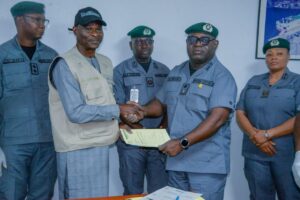
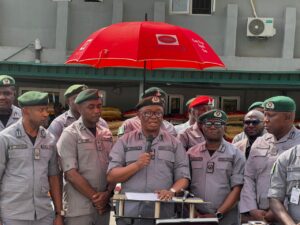

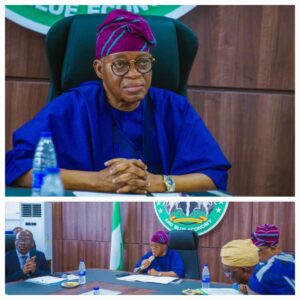

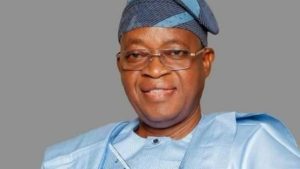





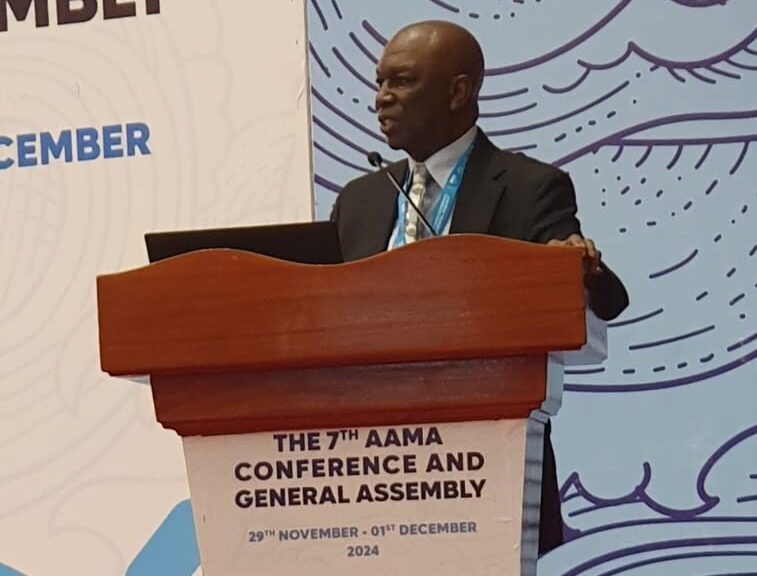
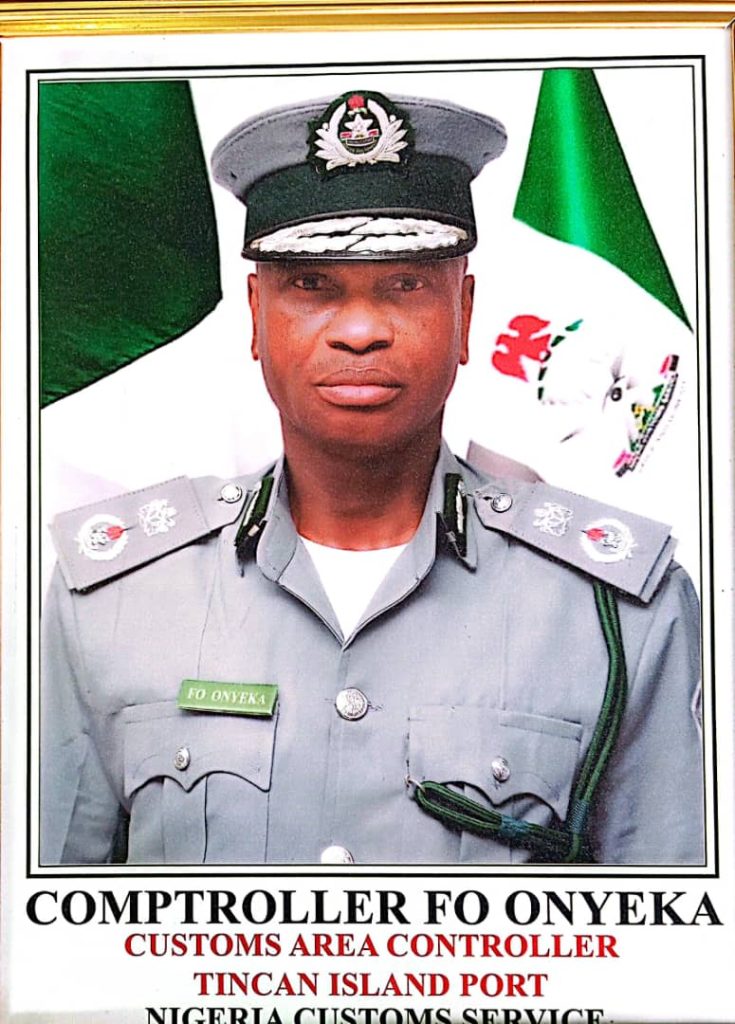
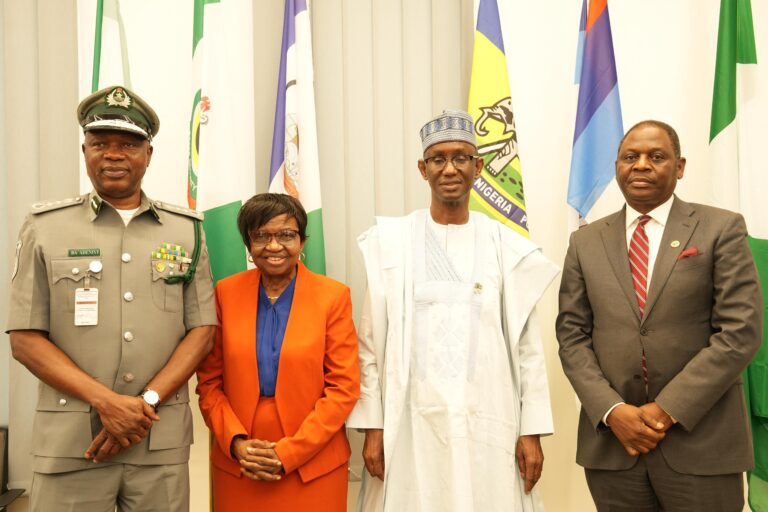

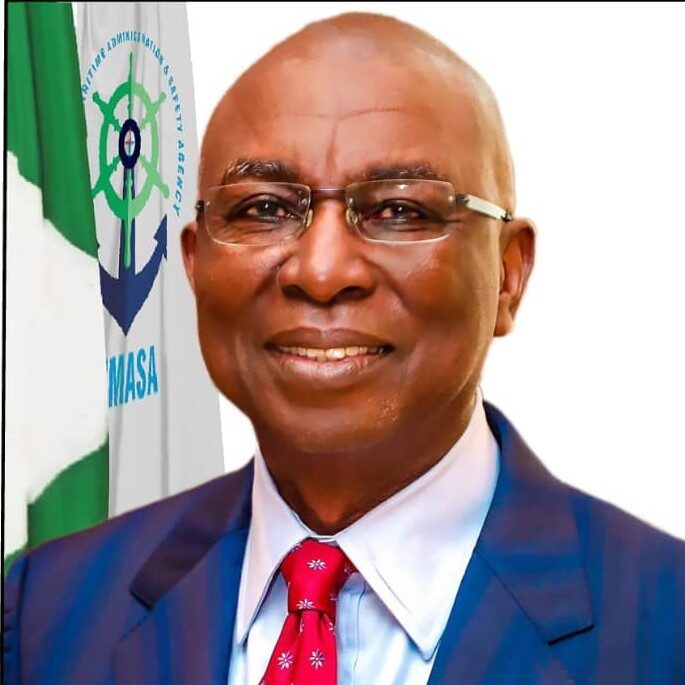

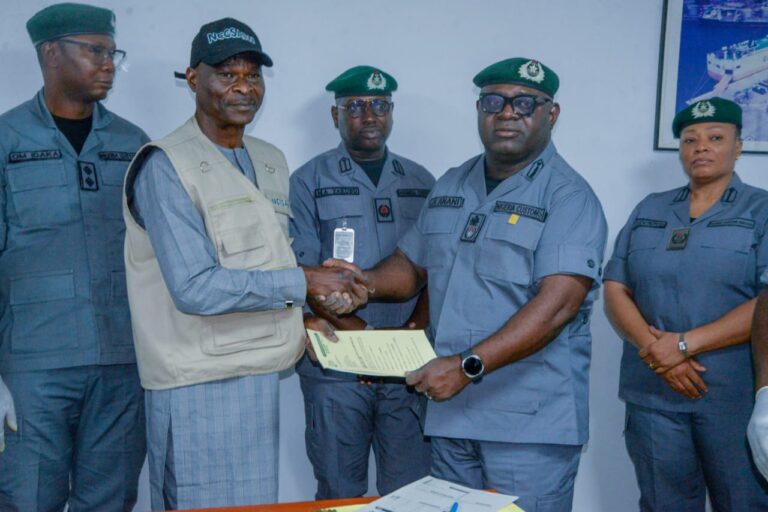
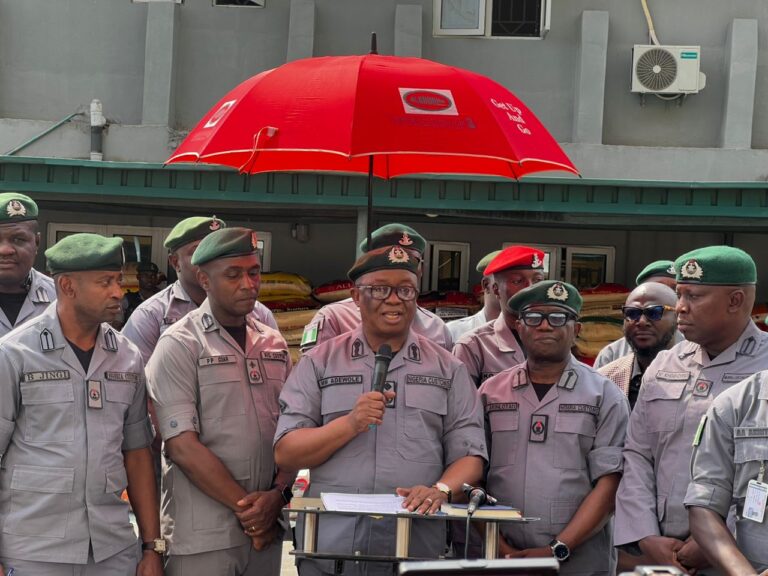

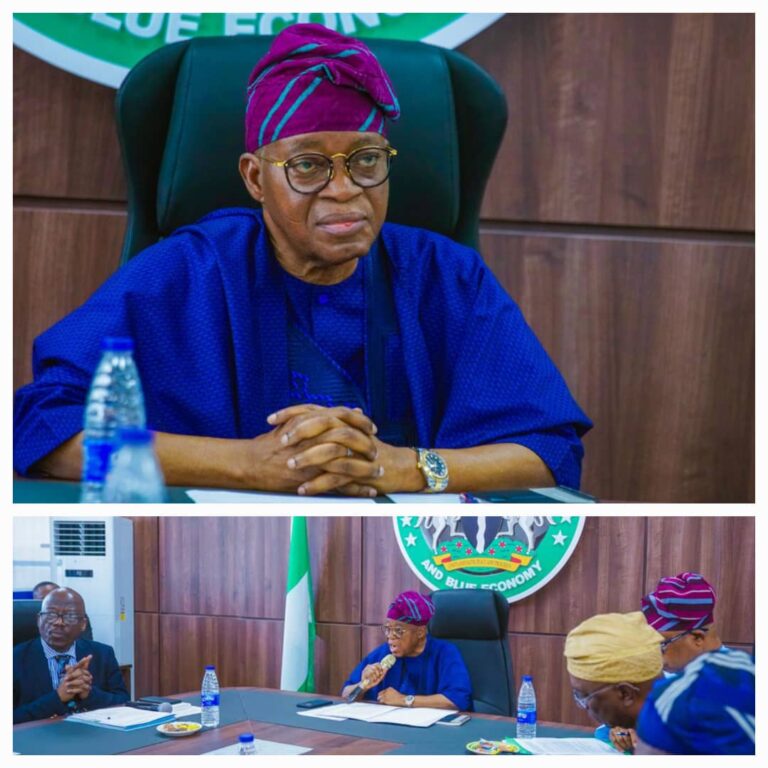

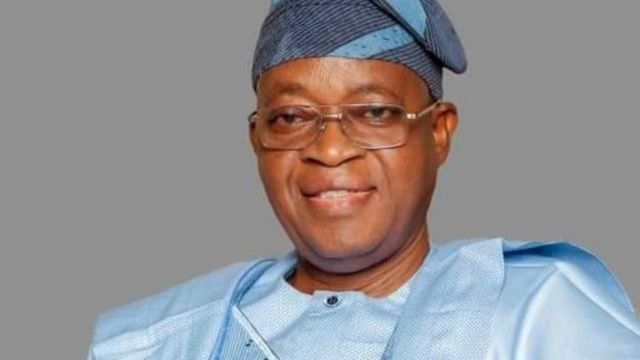

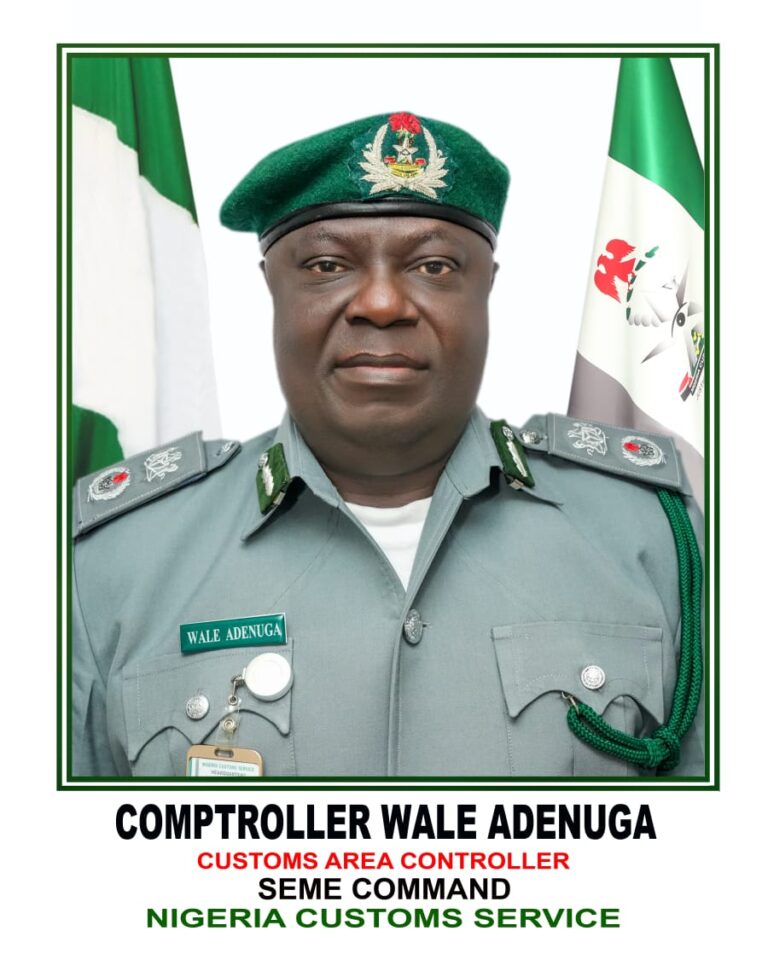
+ There are no comments
Add yours